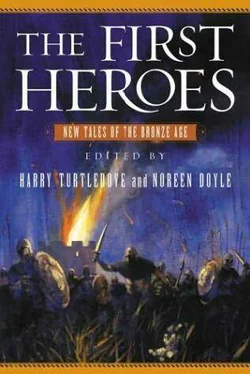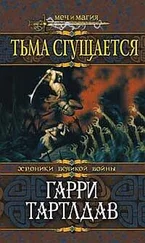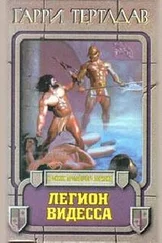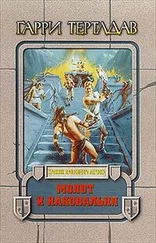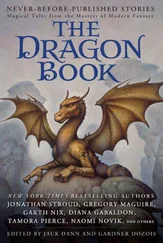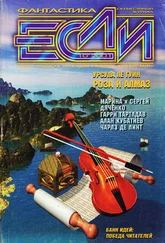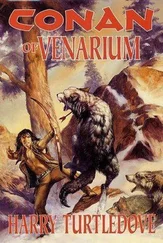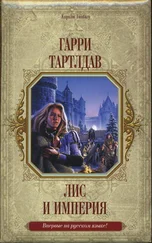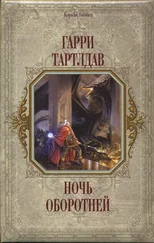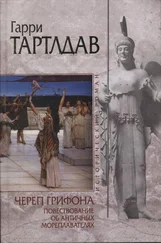Гарри Тертлдав - The First Heroes
Здесь есть возможность читать онлайн «Гарри Тертлдав - The First Heroes» весь текст электронной книги совершенно бесплатно (целиком полную версию без сокращений). В некоторых случаях можно слушать аудио, скачать через торрент в формате fb2 и присутствует краткое содержание. Жанр: Фантастика и фэнтези, на английском языке. Описание произведения, (предисловие) а так же отзывы посетителей доступны на портале библиотеки ЛибКат.
- Название:The First Heroes
- Автор:
- Жанр:
- Год:неизвестен
- ISBN:нет данных
- Рейтинг книги:3 / 5. Голосов: 1
-
Избранное:Добавить в избранное
- Отзывы:
-
Ваша оценка:
- 60
- 1
- 2
- 3
- 4
- 5
The First Heroes: краткое содержание, описание и аннотация
Предлагаем к чтению аннотацию, описание, краткое содержание или предисловие (зависит от того, что написал сам автор книги «The First Heroes»). Если вы не нашли необходимую информацию о книге — напишите в комментариях, мы постараемся отыскать её.
The First Heroes — читать онлайн бесплатно полную книгу (весь текст) целиком
Ниже представлен текст книги, разбитый по страницам. Система сохранения места последней прочитанной страницы, позволяет с удобством читать онлайн бесплатно книгу «The First Heroes», без необходимости каждый раз заново искать на чём Вы остановились. Поставьте закладку, и сможете в любой момент перейти на страницу, на которой закончили чтение.
Интервал:
Закладка:
His knees were weak and his wits scattered, but those eyes compelled him. They drew words out of him, words that even made sense—and that was a miracle worthy of her divinity. "I—I have heard that the god came from the east, and he brought with him an art and a weapon. He forges bronze, they say, that is stronger and brighter and keener than any in the world. His swords are sharper, his spearheads more deadly. But even more than those, he has a craft, a thing of power and terror. It rolls like thunder over the earth. Great beasts draw it, swifter than the wind. Wherever it goes, armies fall like mown grain."
"Travelers' tales," said the king.
"Travelers who have been to Aratta," his sister said. "Is there more?"
Lugalbanda had an itch between his shoulderblades. It would have killed his dignity to scratch it, yet it was a miserable niggling thing.
It could not drive him any madder than the sight of her face. "There—there is a little, divine lady. They say the god rides in his great weapon, and rules it with the terror of his will. And—and they say that he is not alone. That he has made more of them, and taught the men of the city to master them, and they are unconquerable in battle."
"It is true," said the eldest of the council, who was deaf and nearly blind, but his wits were still as sharp as ever. "Even I hear a thing or two, and I have heard that no enemy has threatened Aratta since shortly after the god came to it. It's more than the terror of his presence; he has weapons that deter even the hordes of savages."
Enmerkar smote his thigh with his fist. "If Aratta has such weapons—if this is not dream and delusion—we need them. We need copper and stone, wood and bronze. We need strength to drive back the Martu and to keep them from coming back again and again."
Inanna clapped her hands together. "All hail to the king of Uruk! Yes, we need what Aratta has—and it would be best if our messenger went soon, before winter closes the mountain passes. As it is, he'll not come back until spring, but maybe he'll come to us with a hoard of god-forged weapons."
"And maybe he'll come back empty-handed, or never at all." But Enmerkar was less despondent than he had been in all this Martu-embattled year. "It's a risk I'm willing to take. But, lady, to send a caravan—"
"We can't send promises," she said. "We're too desperate. It must be sacks of wheat and barley, and jars of dates and baskets of apples and all the riches of the earth that we can possibly spare."
"And wine," the eldest councilor said. "Send the king a great gift of date wine, and see he drinks a good part of it while he haggles. That will bring him round if nothing else will."
He grinned a toothless grin. Some of them were outraged, but laughter ran round the rest of the circle, easing the mood remarkably. He had won them over more truly with laughter than she had with her fierce impatience.
She was in no way contrite, though she had the grace to acknowledge his wisdom. "We should leave as soon as may be," she said, "with as large a caravan as we can muster, under a strong guard. You"—she thrust her chin toward Lugalbanda—"will command the guard. See that you choose men brave enough, and hardy enough, for mountains." Lugalbanda could find no words to say. He was the youngest and the least of this council. He was a fighting man, to be sure, and had led a company of stalwarts from the city with some credit and a number of victories the past few seasons. But to leave Uruk, to venture the mountains that walled the north of the world, to walk where all the gods were strange—
"I am not—" he began.
No one heeded him. The king had heard what Inanna had tried to hide behind the shield of Lugalbanda. "You are going? Lady, you cannot—"
"I am going," she said with divine certainty. "My temple will do well enough in my absence. The rest of the gods will look after the city. No one and nothing in Uruk will suffer because I have gone from it."
"No one but you," her brother said bluntly. "Lady, the journey is long and the road is hard. As great and powerful as you are, and as divinely blessed, still you walk in flesh, and flesh can be destroyed. We can't risk the loss of you."
"You can't risk a lesser messenger," she said. "You could send every wise man in this council, and that would be a noble embassy, but my heart declares that they would fail. I may not succeed, either, but the refusal may be less swift. Men will hesitate to refuse a goddess."
"I can't let you go," Enmerkar said.
She raised her chin. When she drew herself up, she was nearly as tall as the king. She met him eye to eye and will to will. "I am not yours to permit or deny," she said with dangerous softness. "I belong to Uruk, and Uruk has great need of me."
He was not struck dumb—far from it. But before he could burst out in speech, the eldest councilor said, "Certainly no man may oppose the will of a goddess. But, lady, Uruk will be a sad place without you."
"Uruk will be sadder when the Martu break down the gates," she said. "A god may address a god, even when kings are minded to be difficult. I will speak as an equal to the god in Aratta, and see what I may win for Uruk."
Even the king could hardly fail to see the sense in that. He scowled and snarled, but he no longer tried to forbid her. She rose from her chair of honor and shook out the flounces of her skirt. "We leave before the moon comes to the full," she said.
Whatever protest any of them might have uttered, she did not hear it. She had swept out, grand as a goddess could be, in every expectation that when she deigned to look again, all would be done exactly as she had ordered.
Mountains went up and up, but never quite touched the sky. Lugal-banda's men had known no height of land but what men made with their own hands: towers, and walls of cities. This lifting and tilting and tumbling of the earth robbed them of breath and sense, numbed them with cold and pelted them with stinging whiteness.
Snow, their mountain-born guides called that. They were casually contemptuous of the flatlanders, as they called the men of Uruk—but they were in awe of the goddess who traveled with them. Lugalbanda had deep doubts of their trustworthiness, but their fear of the goddess had proved thus far to be greater than either greed or malice.
He had been trudging upward since the world began, and wheezing for breath the more, the higher he went. Some of the men had had to turn back: they were dizzy, their heads were splitting, and when they tried to rise o r walk they collapsed in a fit of vomiting. Lugalbanda was not much happier than they, but he had so little desire to eat that there was nothing to cast up.
There had been a raid or two, days ago; they had lost a pair of oxen and a drover. But since they had come to the top of the world, they were all alone but for the occasional eagle. Lugalbanda was sure by then that their journey would have no end, that they would climb forever and never find Aratta.
Inanna, being divine, knew no such doubts or weakness. She walked ahead of her people, beside or just behind the guides, wrapped in wool and felt and fleece, and nothing showing from the midst of it but her great dark eyes. She refused to ride on one of the oxen; she would not let one of the men carry her. Her legs were sturdy and her strides long; she breathed as easily on the summits as in the river valley in which she had been born.
Lugalbanda followed her blindly. The snow was so white, the light so piercing, that his eyes stabbed with pain. He wrapped them in folds of linen and followed the shadow of her, and knew little of where he went. He had no mind left; it was all burned out of him, there beneath the roof of heaven.
Even as dazed he was, he became aware, one bitterly bright day, that the ascent had stopped. They were going down, slowly sometimes, and at other times precipitously. Little by little the air warmed. The snow thinned. The sun's light lost its fierce edge. Lugalbanda's eyes could open again without pain, and his mind began to clear.
Читать дальшеИнтервал:
Закладка:
Похожие книги на «The First Heroes»
Представляем Вашему вниманию похожие книги на «The First Heroes» списком для выбора. Мы отобрали схожую по названию и смыслу литературу в надежде предоставить читателям больше вариантов отыскать новые, интересные, ещё непрочитанные произведения.
Обсуждение, отзывы о книге «The First Heroes» и просто собственные мнения читателей. Оставьте ваши комментарии, напишите, что Вы думаете о произведении, его смысле или главных героях. Укажите что конкретно понравилось, а что нет, и почему Вы так считаете.
